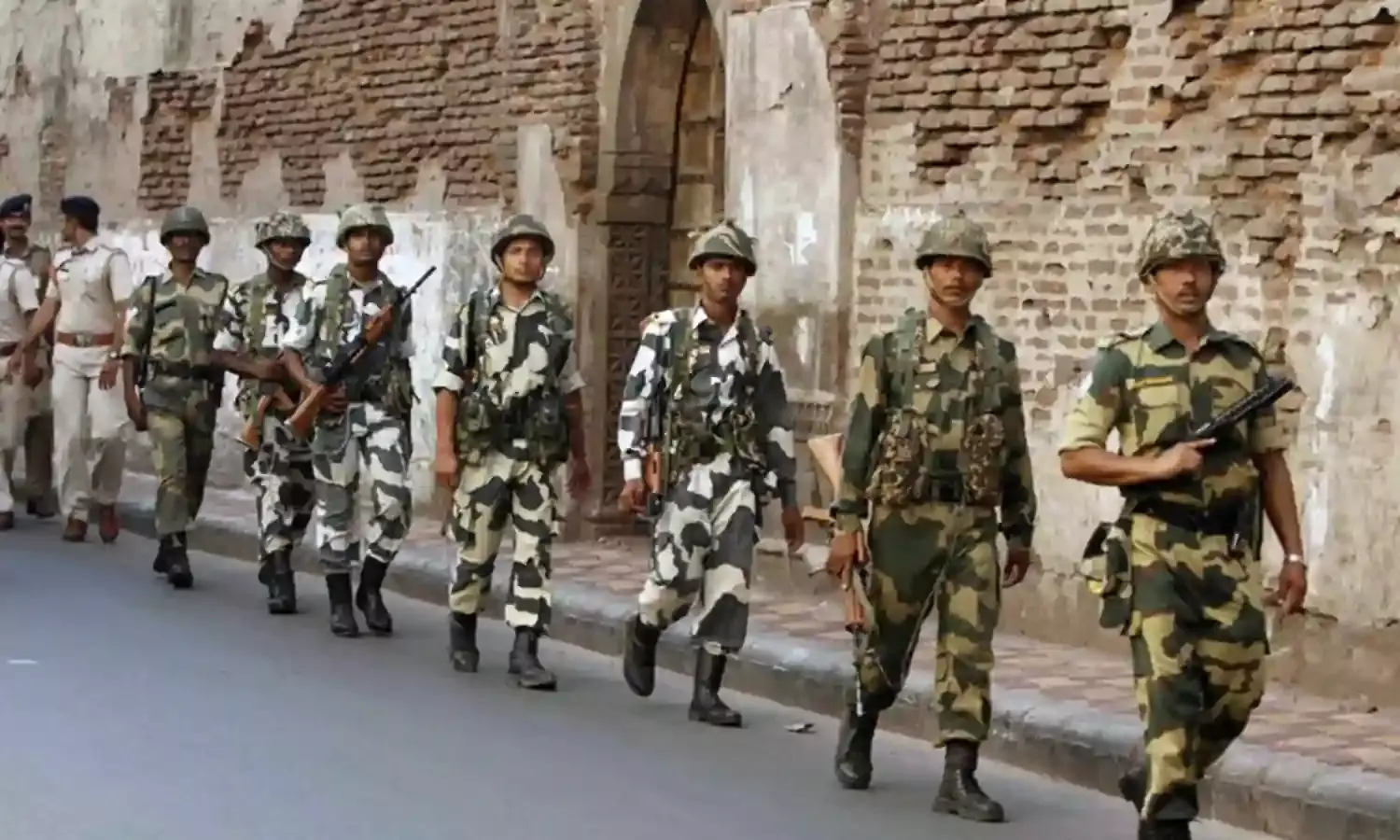Strategy of Lodging FIRs Sees Decline in Hate Mongering in Gujarat
Strategy of Lodging FIRs Sees Decline in Hate Mongering in Gujarat

An initiative by social activists and concerned citizens using the law to counter hate spread has started showing positive results in Gujarat.
For the last one month these activists have been lodging police complaints against hate messages and campaigns in the media and the social media.
Shamshad Pathan of Alpsankhyak Adhikar Manch who is a lawyer by profession told this reporter, “The strategy has worked as there is almost 85 per cent decline noticed in the writing and sharing of hate messages across the board.”
Dalit activist Kaushik Parmar who has been instrumental in getting people to lodge police complaints against those spreading hate said, “Today we find that many people have deleted not only their posts but social media accounts as well.”
Pathan disclosed, “Till Wednesday evening there had been 686 FIRs lodged against those spreading hate or rumours. There have been 1385 arrests with the accused being released on bail. Our next step would be to approach the senior officers once this lockdown is over to pursue those complaints that have not been converted into FIRs. We are confident that majority of these would be converted and for the remaining we will take the court route.”
It all started with one Javed of Sojitra in Anand district lodging the first FIR after which the initiative gathered steam. Shamshad Pathan went on to hold live Facebook sessions explaining to the people how to approach the Police with clippings, screen shots and recordings of the hate messages. He told the people that if lower level police officials’ delay filing the complaints they should lodge their grievances through the e-complaint system available on the police website which could be followed.
“Our strategy is to approach officers of the rank of Superintendent of Police, District Superintendent of Police who takes care of rural areas of a district and the Additional Commissioner of Police (ACP). While these senior officers have been very helpful, some junior rung officials are not happy. But when there are instructions coming from senior officials to probe a complaint so that it may be converted into a FIR they have no option but to follow the orders and revert in black and white,” Pathan explained.
He further pointed that the most positive aspect in these cases registered are that barring the first one, the complainant in these cases is the police itself. The people just have to approach the officers with complaints and evidence.
Parmar explained, “It is very interesting to see who these hate spreading people are and what they have in common. These are people affiliated to various Hindutva groups who have been spreading hate against the minorities and the Dalits. These people have been posting and circulating messages that are targeting Muslims on various counts or opposing reservation. They have been writing a lot of filth against Babasaheb Bhim Rao Ambedkar to provoke the Dalits.”
On expected lines, there has been resistance coming from the affiliates of such hate spreading groups. “They prepare a frame or a tagline supporting the person against whom a complaint has been lodged and circulate it saying ‘I support…’ This is their way of staying relevant for their supporters,” Parmar said.
An interesting report came from Kutch where a group affiliated to a Hindutva group named Hindu Yuva Sangathan Bharat submitted a memorandum to the local administration seeking action against ‘a gang targeting Hindus by using social media as a part of a conspiracy’. (https://www.facebook.com/raghubj/videos/2852137154884959/?epa=SEARCH_BOX).
“The administration should not encourage such people. It works out very simply that if the complaint is false there would be no action against anyone and if the charges are true the guilty will face the music,” said Shamshad.
“We need not be scared. This hate mongering can be stopped only when aware citizens come together to counter it,” underlined Parmar.
He further said, “We are not asking anyone to dig out any previous posts or messages. But any new message that comes to your knowledge needs to be reported. We are also against supporting and using social media messages coming from abroad in support of Indian Muslims to embarrass authorities. It is our internal matter and we believe in utilizing our legal rights to tackle the problem.”
Information Technology professional Munaf Ahmed Mullaji recently told this reporter, “My individual investigation revealed that the hate mongers are connected to each other and function as a group to utilize several social media and other platforms simultaneously.” Munaf has also lodged complainants against hate spreaders.
Interestingly, there have been complaints lodged against media persons as well who have been accused of spreading hate in the vernacular dailies.
There is considerable anger against the role played by the media in spreading hate. Nazir Patel who is associated with Ahmedabad Task Force pointed out, “Things have come to a pass that I have stopped watching television news because it disturbs me. I have experienced by non Muslim friends getting influenced by biased media reports targeting one community that has led them to post hate messages on social media. “
He disclosed that it was hate being spread against Muslims and holding the Tablighi Jamaat congregation in New Delhi responsible for the COVID19 outbreak. As well as other videos of vegetable vendors and poor people being targeted that led him to approach the police with no less than 13 complaints. He pointed out that messages asking people not to employ Muslims and media trials on television have disturbed many educated people who are sick of hate mongering and are looking for ways to counter the hate narrative.
The trend of taking the legal recourse to hate mongering is now spread across Gujarat with certain activists also doing the same in neighbouring states like Maharashtra.
Cover Representational Image



